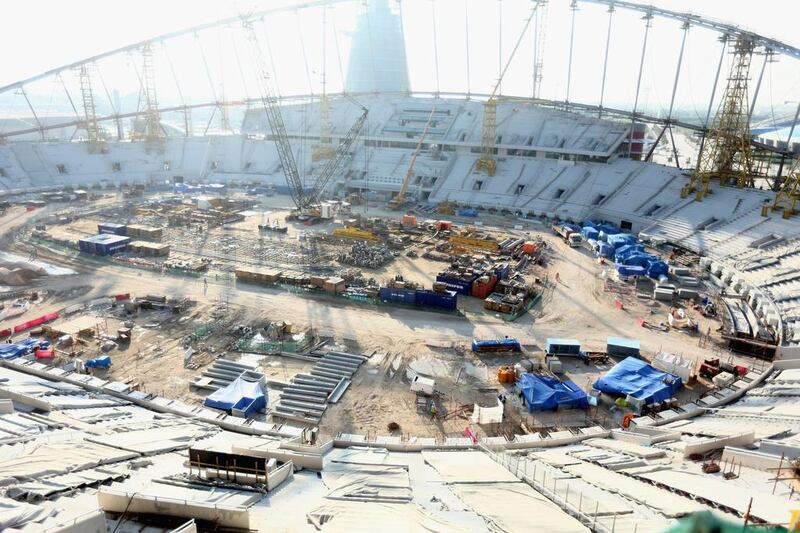Dubai and Jeddah have become comparatively cheaper to build in over the past 12 months, but Fifa World Cup-related activity is continuing to inflate costs in Doha, according to a new study.
The International Construction Costs 2017 report by Netherlands-based consultancy Arcadis stated yesterday that Doha has now become the 11th costliest construction market out of the 44 global cities that it tracks, while Dubai fell by one place to 19th, just below Jeddah in 18th.
The report argued that across the GCC in general, construction costs were falling as lower oil prices and the strong dollar, to which most GCC currencies are pegged, were both affecting local markets, with deficits forcing governments to curtail project spending and end subsidies.
It argued that in the medium term, economic diversification programmes such as Saudi Arabia’s National Vision 2030 will bring benefits in terms of new work, but “in the short-term there’s a degree of uncertainty”.
The consultancy said that despite the significant levels of investment needed in Dubai to help deliver the Expo 2020 project, private sector investors have been less willing to spend as residential, retail and hospitality markets were flat last year.
“Projects are now being initiated ahead of Expo 2020, but many of these will not be procured until mid-2017 at the earliest and could result in further weakness in construction inflation in early 2017,” the report said.
It added that transport spending remains a priority, with rail, metro and airport expansion programmes in Dubai forming the basis for a project pipeline worth about US$70 billion.
In Doha, the consultancy argued that the slowdown in the regional construction market could be seen as a blessing, as it protected Qatar to some extent against a potential hike in construction costs as it aims to deliver World Cup 2022-related projects including the world’s biggest greenfield port, 8,500km of roads and a combined rail and metro programme worth $75bn. It added there were some capacity constraints – in terms of labour, materials and local logistics – in the market.
A report published last week by BMI Research argued that Qatar’s construction market is likely to grow by an annualised average of 12 per cent over the next eight years, fuelled by demand from World Cup-related projects. It said that although state-owned aggregates firm Qatar Primary Minerals Company had signed deals and acquired assets (including quarries in the UAE) to ensure stability of supply of building materials, it still expects prices to increase as demand peaks.
Meanwhile, London-based Arabia Monitor said last week that Qatar’s ministry of finance has allocated 6.5 per cent of its GDP, or $13bn, to new projects, and that almost half of its $24bn budget for 2017 has been allocated for infrastructure, health and education, with an element of this specifically earmarked to stadium construction. So far, Qatar has awarded contracts to build seven World Cup stadiums, with the most recent being made at the end of last month to Turkish contractor Tekfen and Qatari firm Al Jaber Engineering for the 40,000-seat Al Thumama stadium. A contract for the eighth stadium at Ras Abu Aboud is due to be awarded in the second quarter of this year, according to the supreme committee for legacy and delivery.
However, Arcadis has cautioned that Qatar’s construction industry will “soon need to start planning for the slowdown in work that will inevitably follow the peak of World Cup-related expenditure”.
mfahy@thenational.ae
Follow The National's Business section on Twitter







